It can be a pleasant idea to take donkeys as support along a trip or a long hike. This is for example the experience of Tamar Valkenier who hiked the whole Jordan Trail with Yusra, a female donkey that she bought at the beginning of her adventure in Um Qais (https://equestrianadventuresses.com/) . It is also what we can propose in the area of Birgish, where the rent of the donkey help a student to finance his studies.
However, the use of animals in tourism is a very sensitive issue as so many abuses are recorded in famous tourist sites around the world and also in Jordan. Those abuses can rise from the exploitation, poor working conditions and lack of good care imposed by their owners as well as a harsh environment (heat, steep ground, no access to water…), but also the lack of awareness of the users, it means the tourists themselves.
Donkeys are particularly exposed to abuses. Their stoic attitude makes difficult to determinate their suffering or discomfort. The main and regular problems we meet with donkeys are:
- Overloading: in average a donkey can carry comfortably about 50 kg or the 20% of his weight (which is 200 – 250 kg). The capacity will be also determined by the riding time and the type of the ground. This means that an adult may be too heavy for many donkeys.
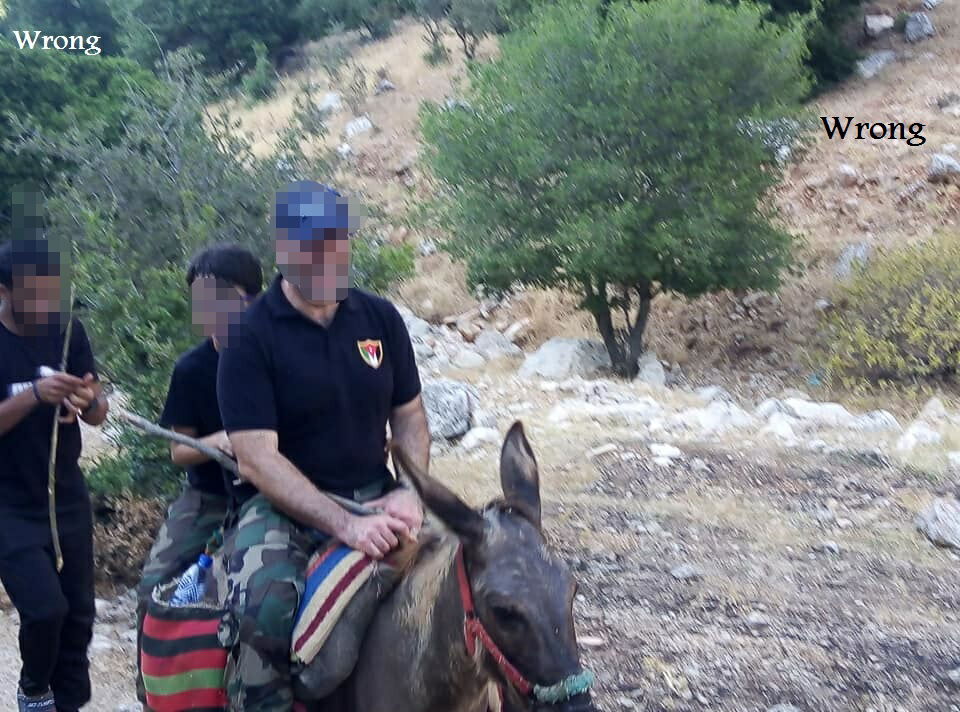
- Use in steep ground: equines should not be ridden downhill, this harms their articulations.
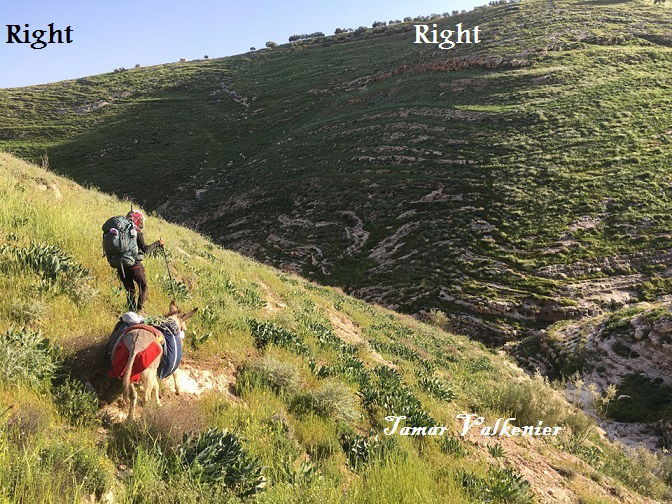
- Use in stairs: donkeys should not be used in stairs, especially downstairs, for the same reasons.
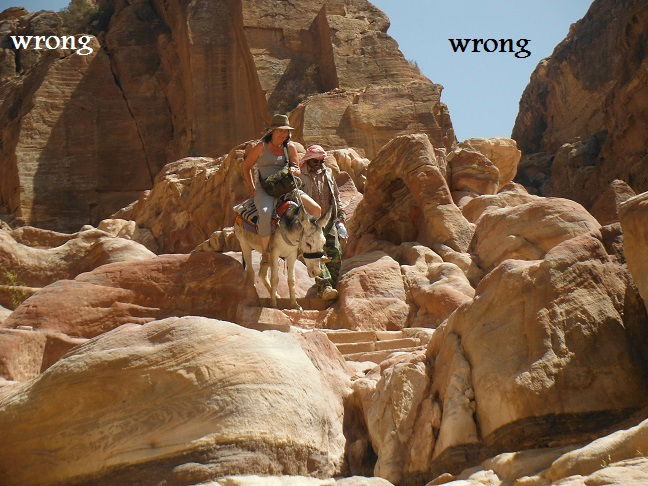
- Rest, food and water access: the animal must be able to rest regularly and in shade, have access to refueling and especially to water. Dehydration is a regular issue for working donkeys as they work most of the time in full heat.
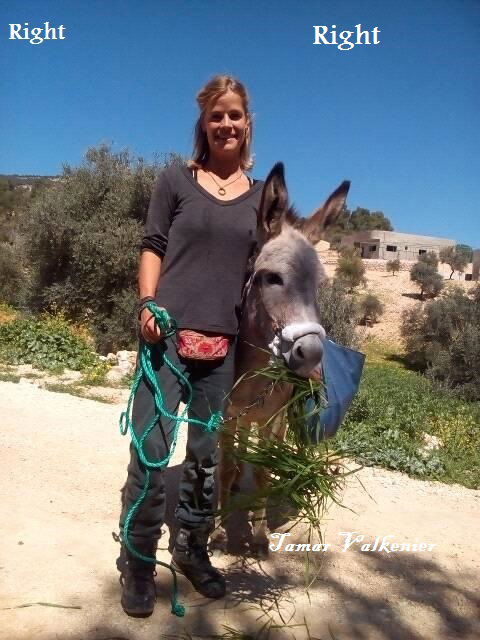 | 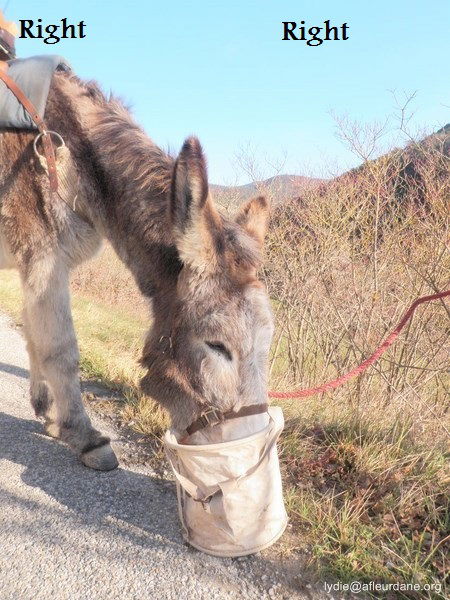 |
- Quality of harness and saddles: the harness and saddle material must be appropriate and should not cause any wound to the animal. The chains over the nose should be banned (photo below)!
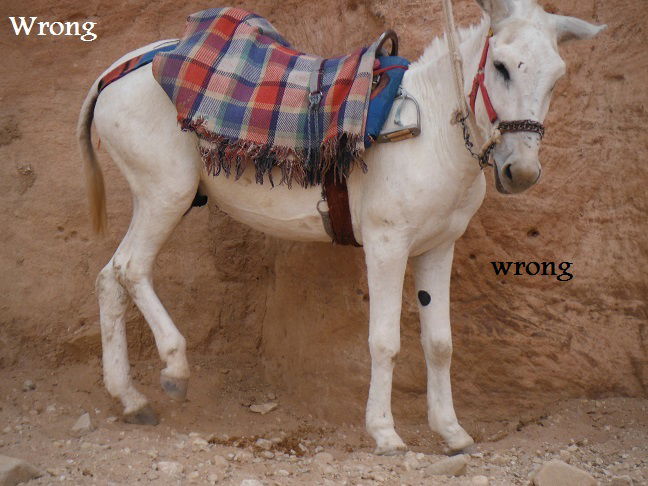
- Health issues: emaciation, limping and untreated wounds are regular issues of overworking animals (photo below: horse).
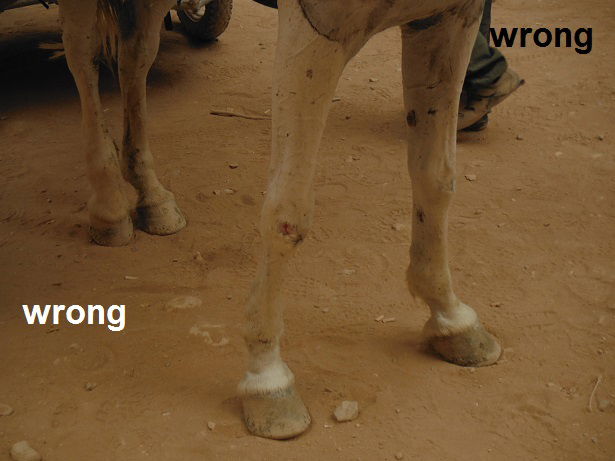
Before using a donkey, make sure that all those basic welfare conditions are respected. Consider that local owners may not be aware or trained on animal welfare standards and that donkeys may be traditionally overworked and disregarded. The donkey you use must look healthy and well feed. Never ride an animal that you notice limping. Do not accept riding an animal which has a chain on the nose. If your weight exceed the normal carrying capacity of the animal, waive riding or choose a stronger equine (a mule) if possible. Never take your child with you on the same donkey. Foresee water to give to your donkey. And of course, never accept any ride if you witness or suspect whipping or any mistreatment!
If you notice a lack of care or lack of awareness in the treatment of the animals, better not get in discussion with the animal handlers or owners. You may face unexpected reactions that will complicate the situation. The best way is to report the facts your travel organizer or to the local authorities.